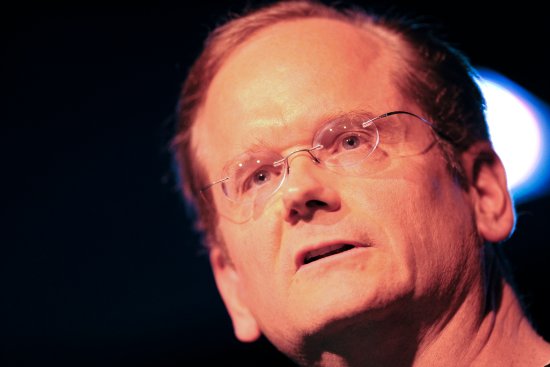
I’m thankful for the people willing to be crazy in their time, not for themselves, or for their time, but for a future they know must be. The abolitionists, decades before the 13th Amendment ended slavery. The women who thought the 14th Amendment secured equality to them too, a century before the Supreme Court agreed. These people sacrifice something in the present for something important in the future.
Doris Haddock, aka “Granny D,” is a favorite recent example. Throughout the 1990s, Haddock grew increasingly frustrated with a democracy that she thought was more responsive to money than to voters. She pushed her representatives to take up the fight for “campaign finance reform.” But she grew frustrated when they didn’t respond. And she grew even more frustrated with her fellow citizens, when it didn’t seem that they saw, at least as clearly as she, just how much we would lose if we didn’t fight to get a democracy back.
So on January 1, 1999, at the age of 88, Granny D began a walk across the United States with a sign on her chest that read, “campaign finance reform.” Thirteen months later, and just a month after she had turned 90, she arrived in Washington, DC. Across 3,200 miles, she had gathered thousands of followers who were both puzzled and inspired by this grandmother walking America to win back democracy. She made them think, and those thoughts have now grown into a fairly common recognition that indeed, she was right. A decade before the first SuperPAC, Granny D was building the movement that would take the SuperPAC on. And I am quite certain that a decade from now, that movement will have succeeded.
We need a better way to pay it backward. To acknowledge the difficulty in such sacrifice, if only to inspire others to do the same. Nothing changes without the defeats that these people are certain to suffer. And none of the greatest victories in the history of social justice have come without their defeats.
We should be thankful to them who are certain to get no reward for their work — save the knowledge that what they do is right. They have, as Vaclav Havel puts it, not optimism, but hope: “not the conviction that something will turn out well, but the certainty that something makes sense.” The certainty that their cause makes sense. That it is just. And that someone, sometime, has finally got to standup for it.
And maybe walk.
Lawrence Lessig is the Roy L. Furman Professor of Law and Leadership at Harvard Law School and the director of the Edmond J. Safra Foundation Center for Ethics at Harvard University.